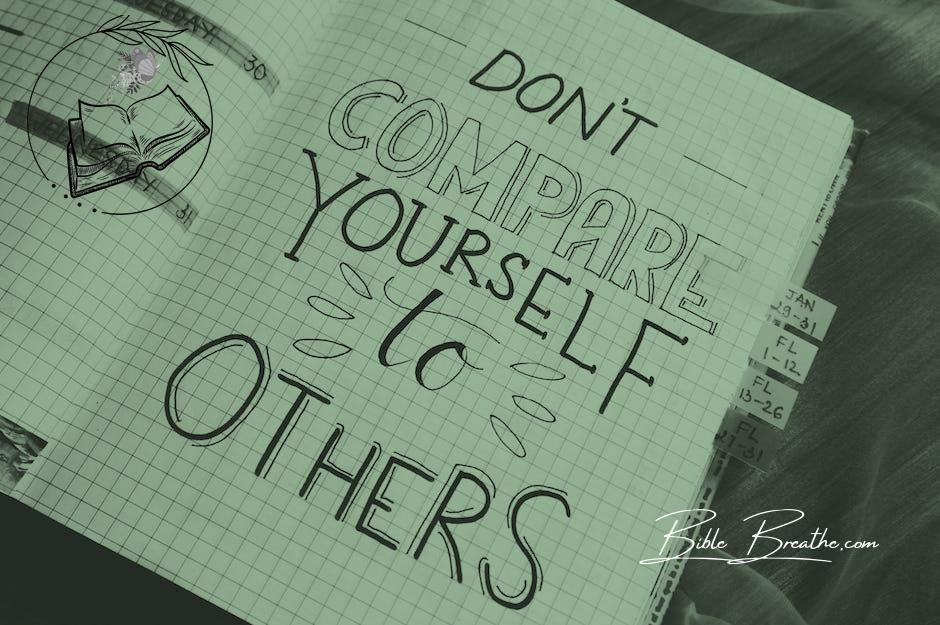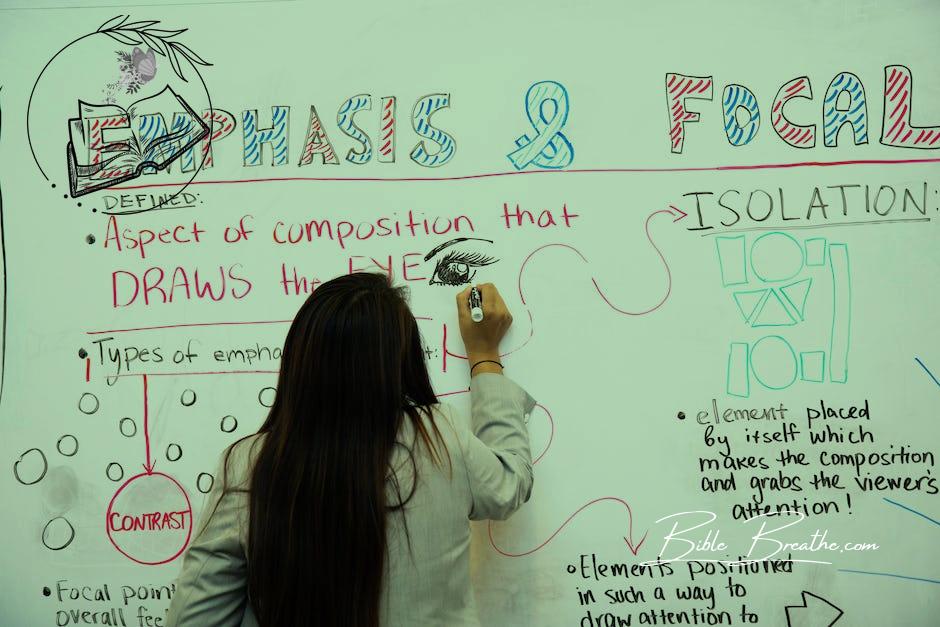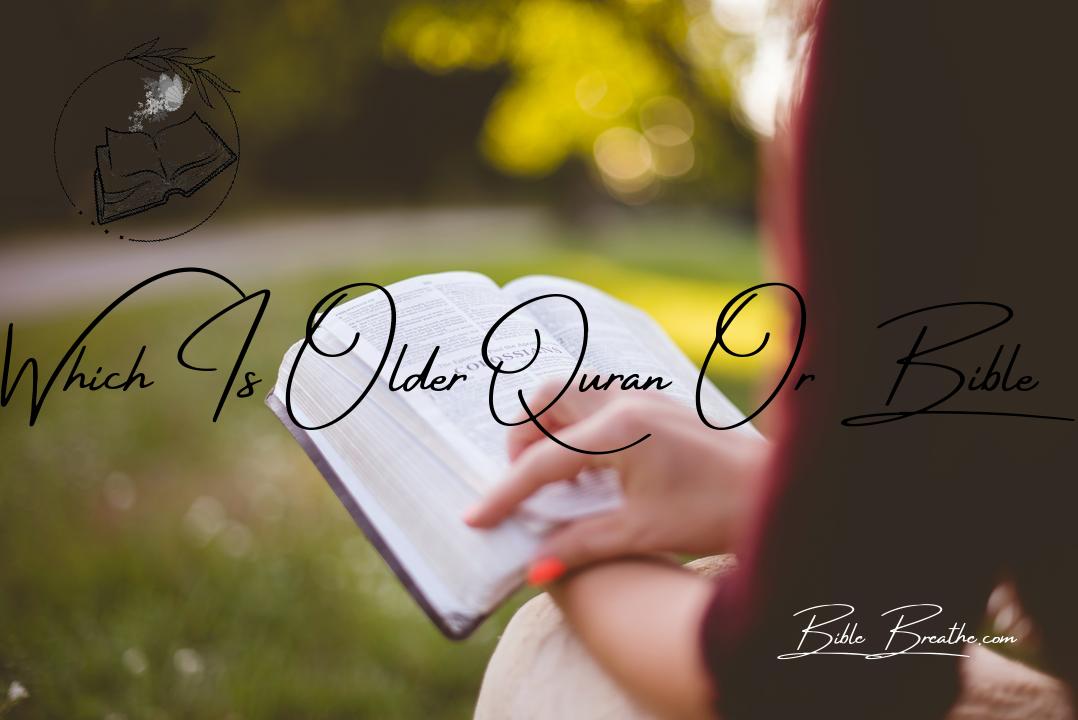Which came first, the Quran or the Bible?
It’s like comparing the roots of two mighty oaks, each with its unique story.
Today, we’re diving deep into the river of history to grasp the essence of these sacred texts.
In our spiritual backpack, we’ve got the Bible, a treasure chest of wisdom going way back, like ancient scrolls whispering secrets.
It’s written in the language of Hebrew and Aramaic, and boy, it’s packed with stories, teachings, and prophecies.
And then there’s the Quran, revealed in the poetic verses of Arabic, a language that flows like a beautiful river.
It came into our world around the 7th century CE, through the heart of Prophet Muhammad.
As we embark on this journey, we’re unearthing the historical context, exploring the moments of divine revelation, the profound morals, and the epic stories that have molded our faith.
So, grab your compass, and let’s sail through time to understand the roots of these incredible scriptures and how they’ve shaped our spiritual landscape.
🌳📖
Key Takeaways
- Understanding the age and origins of the Quran and the Bible requires considering the historical and cultural contexts in which they were written.
- The Quran is considered the newer of the two texts, believed by Muslims to be the literal word of God as revealed to Prophet Muhammad over a period of approximately 23 years in the 7th century CE in Arabia.
- The Bible, comprising the Old and New Testaments, is a collection of sacred texts for both Judaism and Christianity. The Old Testament contains writings dating back to as early as the 12th century BCE, while the New Testament, written after the life of Jesus Christ, dates from the 1st century CE.
- Reading the original texts or translations of these scriptures in their native languages can provide a more comprehensive and nuanced understanding of the religious doctrines and teachings.
- It is important for individuals to seek knowledge from reputable scholars and authentic sources when delving into the study of religious texts, ensuring accurate interpretation and a deeper appreciation of the beliefs and values they hold.
- Understanding the age and context of these texts can foster greater respect, empathy, and understanding among believers of different faiths, promoting interfaith dialogue and collaboration for a more harmonious and peaceful world.
Unlocking the Ages: Quran and Bible in Focus

Photo modified by BibleBreathe.com. Original photo by RDNE Stock project on Pexels
When you’re on a quest for ancient wisdom and spiritual guidance, the Quran and the Bible are like ancient oak trees, deeply rooted in history and spirituality, providing shade and sustenance to seekers.
The Origins of ‘Bible’: A Journey Through Time
Now, let’s dive into the word ‘Bible.’ It’s like unearthing a treasure chest of knowledge.
You see, it comes from the Greek word ‘biblia,’ which simply means ‘books.’ But here’s the thing – it’s not just any collection of books.
It’s a sacred treasure chest filled with scriptures cherished by Christians, housing both the Old and New Testaments.
Inside these pages, you’ll find teachings, prophecies, stories, and moral compasses that define the Christian faith.
The Bible is the heartbeat of Christianity.
In the beginning was the Word, and the Word was with God, and the Word was God.” – John 1:1 (KJV)
The Bible’s Epic Journey Through Time
Now, when did the Bible come to life?
Well, that’s like tracing the footsteps of ancient explorers.
The Bible’s story stretches back thousands of years, my friend.
It’s a masterpiece woven together by various authors and scribes over the course of centuries, starting from around 1500 BCE and continuing to the first century CE.
Imagine the Old Testament as the foundation, penned in ancient Hebrew and Aramaic, and then came the New Testament, written in Greek.
A Towering Linguistic Odyssey
The Bible isn’t just a book; it’s a linguistic marvel.
It’s been whispered in the hush of ancient languages: Hebrew, the voice of the Old Testament; Aramaic, making appearances here and there; and Greek, the eloquent tongue of the New Testament.
And as it journeyed through time, it spoke Latin too, ensuring its wisdom reached far and wide, casting its influence across the Western world.
The Bible’s historical journey is like a river, winding through the ages, always carrying its ancient roots and timeless wisdom to nourish the souls of those who seek its guidance.
Unraveling the Ages: Quran and Bible

Photo modified by BibleBreathe.com. Original photo by Abdullah Ghatasheh on Pexels
In the rich tapestry of faith, we encounter two revered scrolls: the Quran and the Bible.
They are like ancient treasures, cherished by their believers.
But, here’s the age-old riddle: which came first, the Quran or the Bible?
The Quran’s Sacred Beginnings
The Quran, Islam’s guiding light, is like a timeless compass for millions.
It’s seen by Muslims as the very words of God, whispered to Prophet Muhammad by the angel Gabriel.
Its role in Islamic life is beyond measure.
“No doubts here; it’s a roadmap for the God-conscious.” – Quran 2:2 (KJV)
The Quran’s Journey Through Time
The Quran’s history is quite the journey.
It was unveiled to Prophet Muhammad over about 23 years, beginning in 610 CE and wrapping up in 632 CE, the year he left this world.
This gradual revelation mirrors the unfolding events of its era.
The Language of the Quran: Arabic Elegance
The Quran, in its original form, flows in classical Arabic.
It’s like a river of wisdom, fluent and profound.
Back then, Arabic dialects were as diverse as a garden’s blooms.
Yet, the Quran was revealed in a form of Arabic that was like poetry, touching hearts across the Arabian Peninsula and beyond.
Now, when you compare this to the Bible, you dive even deeper into the wellspring of history and faith.
Understanding their ages is like turning on a light, illuminating their immense impact on the souls they guide.
Unveiling the Ages: Quran and Bible in a Timeless Duel

Photo modified by BibleBreathe.com. Original photo by Bich Tran on Pexels
Imagine standing at the edge of eternity, gazing into the depths of faith and time.
The Quran and the Bible, like ancient treasures buried deep in the sands of history, hold within them the wisdom and guidance cherished by two mighty Abrahamic traditions.
So, let’s embark on this quest to uncover which of these sacred scrolls first graced the world.
A Tale of Compilation: Divergent Paths
The story of how these holy texts were woven together is a tapestry of contrasts.
The Quran, revered by Muslims as the very words of God, whispered to Prophet Muhammad, was meticulously transcribed during his lifetime and transformed into a single, cohesive volume shortly after his passing.
In stark contrast, the Bible is a diverse tapestry, a patchwork quilt of texts penned by many hands over centuries.
It embraces various literary styles and historical contexts.
In the beginning God created the heaven and the earth.” – Genesis 1:1 (KJV)
Authors Unveiled: One Divine, Many Human
In the Quran, the authorship is divine, with God as the singular voice, speaking through Prophet Muhammad.
But oh, the Bible dances to a different tune.
It’s like a grand symphony conducted by around 40 composers, each sharing their unique perspectives, all divinely inspired.
The Familiar Faces: Abraham, Moses, Mary, and Jesus
Now, as we wander through the pages, we find familiar faces.
Abraham, Moses, Mary, and Jesus, those pillars of faith, grace both the Quran and the Bible.
Yet, like two artists painting the same portrait, they bring nuances to these beloved figures, shaped by their distinct religious doctrines.
The Great Word Race: Length Matters
When it comes to WORD COUNT, the Quran is the sprinter and the Bible, the marathon runner.
The Quran, with its 114 chapters (surahs), is remarkably concise, whispering around 77,000 words.
Meanwhile, the Bible takes a leisurely stroll through 66 books, boasting over 783,000 words.
Lost in Translation? The Multilingual Dilemma
Translation adds yet another layer to our story.
Devout Muslims believe the Quran’s divine essence is preserved in its original Arabic form, while the Bible has embarked on a linguistic odyssey, speaking to countless hearts in various tongues.
This broader readership sometimes leads to diverse interpretations, a kaleidoscope of understanding.
The Quran and the Bible, like twin stars in the cosmic tapestry of faith, shine brightly, each illuminating the path to divine connection and moral guidance.
Regardless of which made its debut first in the annals of history, they continue to inspire and guide believers across the ages.
Unraveling the Timelines: Quran, Bible, and the Fascinating Role of Hadith

Photo modified by BibleBreathe.com. Original photo by Pok Rie on Pexels
In the intricate mosaic of religious history, questions about timelines often pop up, especially when it comes to the Quran and the Bible.
Let’s dive into the age-old conundrum: which one came first, the Quran or the Bible?
Defining the Significance of Hadith
Hadith, an integral part of Islamic tradition, encompasses the words, deeds, and approvals of Prophet Muhammad.
It’s like a practical guidebook, shedding light on how the Quran’s teachings were lived out in practice.
“We’ve also sent down to you (Muhammad) the Dhikr (that’s the Quran), so you can explain it clearly to folks and give ’em some food for thought.” – Quran 16:44 (KJV)
Quran vs. Hadith: What Sets Them Apart
While the Quran is seen as God’s literal words in Islam, the Hadith is a collection of the Prophet Muhammad’s sayings and actions.
The Quran has remained unchanged, keeping its original words and order, while the Hadith varies in terms of authenticity and interpretation because of the diverse narrations and compilations.
The Hadith’s Authenticity Odyssey
The Hadith has quite the journey through history.
Many compilations were made, and scholars painstakingly checked the narrations for authenticity.
But, as time flowed and the art of oral storytelling added its own twists and turns, controversies arose about what’s genuine and what’s not.
Scholars and historians have put in the hard yards to sift the real from the make-believe.
Understanding the Quran and the Hadith is like peeling back the layers of Islam’s essence.
It’s a voyage through time and texts, shedding light on the faith that has shaped the lives and beliefs of millions across centuries.
Harmonious Echoes: Shared Themes in Quran and Bible

Photo modified by BibleBreathe.com. Original photo by Roxanne Minnish on Pexels
Picture this: in the grand tapestry of spiritual wisdom, the Quran and the Bible are like two old friends, sharing common stories, values, and lessons that transcend time, culture, and faith boundaries.
Lessons in Morality and Ethics
Both the Quran and the Bible are like treasure chests of moral and ethical teachings.
They lay the foundation stones of their faiths with lessons on compassion, justice, kindness, and honesty.
It’s like a symphony of virtue, reminding us how to be better human beings.
“And lower to them the wing of humility out of mercy and say, ‘My Lord, have mercy upon them as they brought me up [when I was] small.'” – Quran, 17:24
“Do unto others as you would have them do unto you.” – Luke 6:31 (KJV)
Tales That Resonate
Now, think about it – the Quran and the Bible are like two storytellers who share tales of faith.
The stories of unwavering faith in Prophet Abraham, the Exodus led by Prophet Moses, and the miraculous birth of Jesus to the Virgin Mary, these stories are like bridges connecting the hearts of believers in both traditions.
The Virtues That Bind Us
Truthfulness, humility, respect, and charity are like threads weaving through the fabric of both the Quran and the Bible.
They’re like the compass guiding believers on the path of righteousness.
Speaking the truth, staying humble, showing respect even when differences divide, and lending a hand to those in need – these are the values that light up the way.
“And lower to them the wing of humility out of mercy and say, ‘My Lord, have mercy upon them as they brought me up [when I was] small.'” – Quran, 17:24
“He that hath pity upon the poor lendeth unto the Lord, and that which he hath given will he pay him again.” – Proverbs 19:17 (KJV)
The Quran and the Bible, like two ancient sages, speak their unique languages but echo the same timeless wisdom.
As believers immerse themselves in these sacred texts, they find not only the roots of their faith but also a common ground of moral principles that resonate through the ages, nurturing the souls of humanity.
Unveiling Misconceptions and Controversies: Quran vs. Bible

Photo modified by BibleBreathe.com. Original photo by Werner Pfennig on Pexels
In the realm of spiritual discussions, an age-old question lingers: which came first, the Quran or the Bible?
Let’s roll up our sleeves and dive into the misconceptions and controversies swirling around these cherished scrolls.
Common Misconceptions: Shadows on the Truth
Misconceptions are like foggy glasses, clouding our vision of these sacred texts.
They often sprout from misunderstandings, cultural biases, or misinterpretations.
To truly grasp the Quran and the Bible, we must approach them with open hearts and a willingness to explore their teachings without preconceived notions.
“Those who have deep knowledge say: ‘We believe in the Book; it’s all from our Lord.'” – Quran 3:7 (KJV)
Modern Politics: A Distorted Lens
In today’s complex world of politics, these religious texts can sometimes be twisted to serve certain agendas.
Interpretations and narratives can be bent out of shape, leading to misunderstandings and reinforcing stereotypes.
To truly understand these sacred words, we must separate the sacred from the political.
Tackling Controversial Themes: Slavery, Warfare, and Understanding
Both the Quran and the Bible contain passages that, when taken out of context, can ignite controversy.
Addressing subjects like slavery and warfare demands a delicate touch, considering historical context, linguistic subtleties, and the overarching message of peace, compassion, and justice that both texts ultimately champion.
“If you have to retaliate against an enemy, do it in measure, but if you can endure patiently, that’s even better.” – Quran 16:126 (KJV)
By dispelling misconceptions, recognizing the influence of modernity, and addressing challenging topics within the Quran and the Bible, we pave the path for a more informed and compassionate conversation about these profound religious texts.
Frequently Asked Questions (FAQs) About Which Is Older Quran Or Bible
Which came first, the Bible or the Quran?
The Bible, particularly the Old Testament, predates the Quran.
The Old Testament scriptures were written centuries before the Quran.
How do the teachings of the Bible and Quran differ?
While there are similarities, the Bible and Quran differ in some theological beliefs and narratives.
These variations stem from differences in religious traditions and historical context.
Are there stories that appear in both the Bible and the Quran?
Shared narratives include stories of prophets like Adam, Noah, Moses, and Jesus.
However, variations in details and perspectives exist due to differences in religious texts and interpretations.
{
“@context”: “https://schema.org”,
“@type”: “FAQPage”,
“mainEntity”: [
{
“@type”: “Question”,
“name”: “Which came first, the Bible or the Quran?”,
“acceptedAnswer”: {
“@type”: “Answer”,
“text”: “The Bible, particularly the Old Testament, predates the Quran. The Old Testament scriptures were written centuries before the Quran.”
}
},
{
“@type”: “Question”,
“name”: “How do the teachings of the Bible and Quran differ?”,
“acceptedAnswer”: {
“@type”: “Answer”,
“text”: “While there are similarities, the Bible and Quran differ in some theological beliefs and narratives. These variations stem from differences in religious traditions and historical context.”
}
},
{
“@type”: “Question”,
“name”: “Are there stories that appear in both the Bible and the Quran?”,
“acceptedAnswer”: {
“@type”: “Answer”,
“text”: “Shared narratives include stories of prophets like Adam, Noah, Moses, and Jesus. However, variations in details and perspectives exist due to differences in religious texts and interpretations.”
}
}
]
}
Matt Turner
I’m Matt, and I love breaking down Bible verses in a way that’s easy to understand and apply to everyday life. My goal is to help you connect with God’s Word and find practical ways to live it out. Whether you’re new to the Bible or just looking for some fresh insights, I’m here to walk with you and share what I’ve learned along the way.

